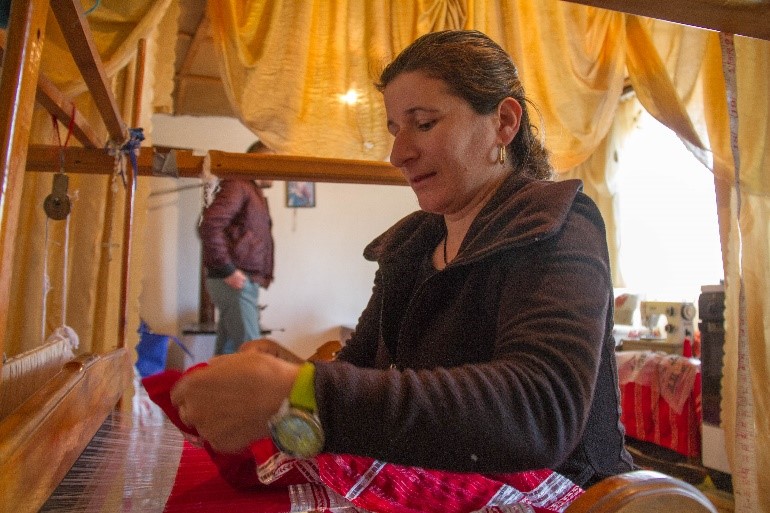Creating opportunities for displaced people returning home
Creating opportunities for displaced people returning home

Contact details
Submitted by:
Dr. Bernhard Braune, Head of Division 224 Return/Reintegration, German Federal Ministry for Economic Cooperation and Development (BMZ)
Website:
https://www.bmz.de/de/themen/flucht
Introduction to the project
Location
Germany and 13 partner countries (Afghanistan, Albania, Egypt, Gambia, Ghana, Iraq, Kosovo, Morocco, Nigeria, Pakistan, Senegal, Serbia, Tunisia)
Duration
2017-present
Description
Creating economic and social prospects for refugees who are returning to their home countries, IDPs and the local population.
Project aims
The programme is aimed at all those in need of support:
It addresses a broad target group, including where applicable also refugees, and is open to anyone who needs support of this kind, be it local people seeking employment or training opportunities in their country of origin or internally displaced people (IDPs) and returnees wanting to make a fresh start in their home country.
The programme aims to help returning refugees and IDPs as well as people within host communities develop their professional potential in their country of origin and thus sustainably improve their economic situation. The programme provides short- and medium-term support on an individual basis, and it aims to bring long-term change. When people are able to undergo training, find work or set up a business, they not only improve their own prospects, but they can make a contribution to their country’s development.
Resources used
The programme builds on the many existing measures and initiatives carried out and structures set up as part of German development cooperation.
It has been linked up with development projects in thirteen countries. This means that people there continue to have access to long-term measures to improve their living conditions and income opportunities.
Partners
Implementation partners include ministries (e.g. ministries of labor, social affairs or migration) as well as authorities (e.g. employment agencies) in the countries concerned. The programme operates in close collaboration with IOM and establishes a system of cross-referral between different reintegration services.
The programme works with numerous civil society organizations in the countries of origin so that it can offer the various support services that people there need.
Main activities of the Good Practice
The programme boasts a broad range of support services that reflects the many different types of target groups it caters for. At advice centres in the partner countries anyone – irrespective of background or personal circumstances – can access free one-on-one guidance to help them map out their way forward. This includes job seekers as well as people who need jobs qualification, psychosocial assistance or to find accommodation after their return in their home country.
To date, advice centres have been set up in Albania, Kosovo, Serbia, Morocco, Tunisia, Senegal, Ghana, Nigeria and Iraq. In Afghanistan, Germany provides such advisory services in collaboration with the International Organization for Migration (IOM).
In addition, the programme has established activities in Germany in order to provide people still living in Germany but interested in returning home with information about the opportunities on offer in their countries of origin.
The programme arranged for reintegration scouts to work with the returnee counselling centres in Germany. The scouts' task is to establish links with reintegration programmes in the countries of origin.
The programme also offers support via a website (www.startfinder.de).
Watch the video: #GIZ supporting Iraqi returnees to build new prospects in their home country
How challenges were overcome
The Advice Centres for jobs, migration and reintegration – as the core of the programme - are set up in close collaboration with national employment agencies and other partners. Their advice and support services are available to all: returnees, internal migrants, the local population and people interested in migrating.
They offer individual advice and information about:
- Local job and training opportunities;
- Reintegration services for returnees;
- (Psycho)social support;
- Requirements and options for regular migration (depending on the country);
- Risks posed by irregular migration.
Results of the Good Practice
- In the countries taking part in the programme, around 460,000 individual support measures (such as counselling sessions, training programmes, job placements and psycho-social support) have been carried out for the benefit of local people, internally displaced persons and returnees.
- More than 76,000 of these measures were specifically for returnees from Germany and other countries.
- More than 13,000 small and medium-sized businesses received support to help secure existing jobs or create new ones.
- By September 2019, the programme helped people to find a job or develop a business more than 133,000 times.
Next steps
More advice centres are being planned.

